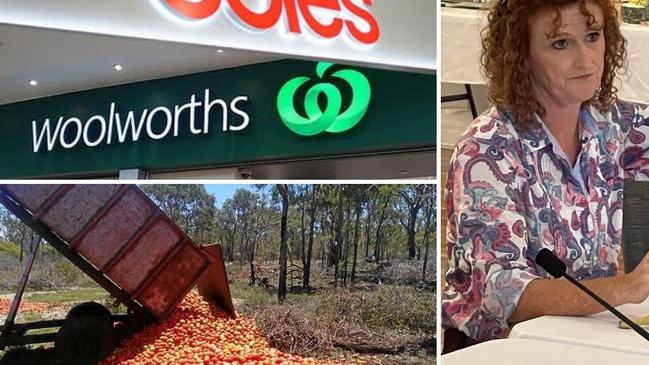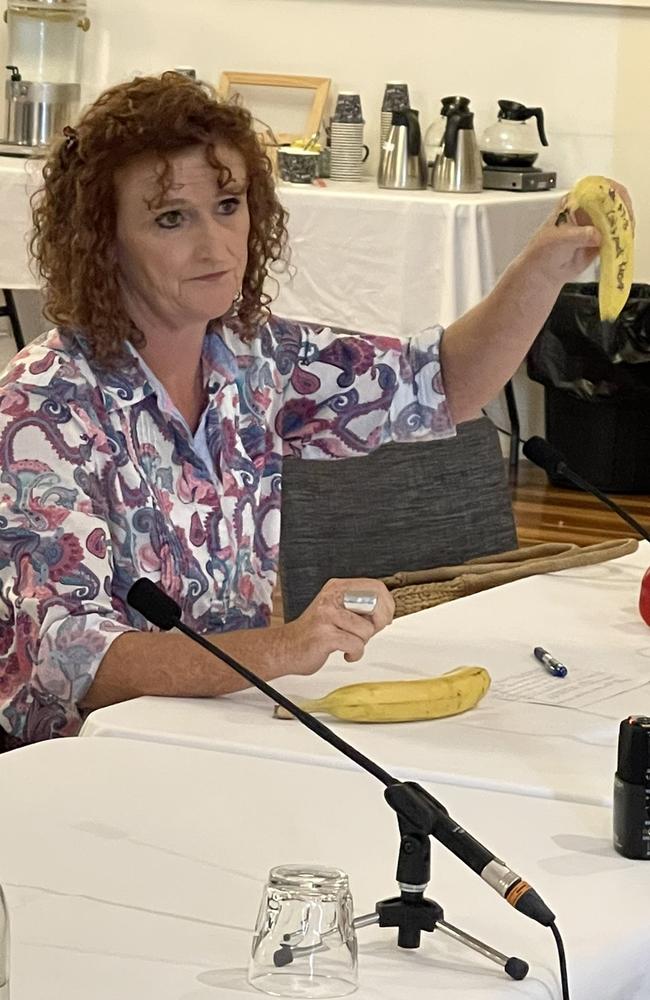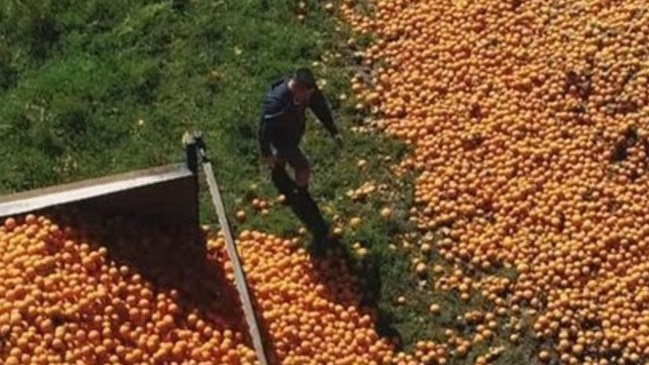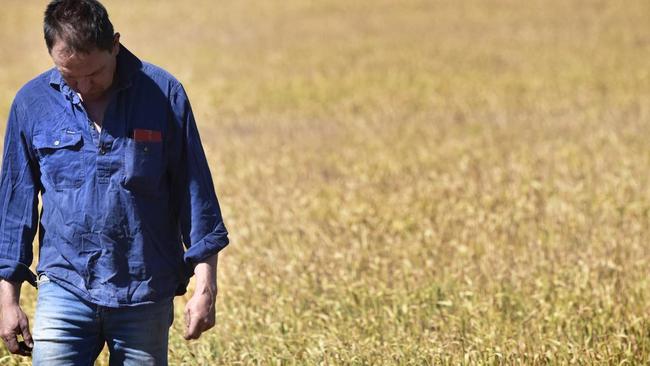Opinion: Supermarket duopoly manipulate consumers and crush farmers for their own gain
Supermarkets have manipulated generations of Australians to expect only perfect, outsized produce. This has devastating consequences for the bottom line and mental health of our hardworking farmers, writes agronomist and farming advocate Judy Plath.

Business
Don't miss out on the headlines from Business. Followed categories will be added to My News.
If 25 years of working with farmers has taught me anything, it’s that farmers are a special breed, able to withstand setbacks and uncertainty that would destroy many others.
In that time, I’ve heard too many heartbreaking stories of farmers getting out of agriculture, going out of business, or being hurt dramatically by supermarket behaviour.
And I’m not only talking about the impact on the farmer’s bottom line; I’m talking about the damage to their mental health. In my career I’ve had at least six farmers confide they were feeling suicidal, struggling under the weight of the pressures of farming in Australia.
MORE NEWS: ‘Standover tactics’: Farmers speak out at supermarket pricing probe
We can’t control droughts or flooding rains, but to see the impacts of a corrupt supermarket industry destroy hard working farmers’ passion for working on the land and producing fresh food is devastating.

To give one personal example, during the height of the dollar per litre milk scandal in 2016 my uncle passed away unexpectedly, and my cousin took over the farm.
Due to the supermarkets colluding to keep milk prices unsustainably low, my cousin could not keep the family farm going.
With his mother in a nursing home, it took him two years to tell her that he had closed the farm because he was so ashamed that he’d let his father down.
Sadly, I’ve seen other very good, hardworking, solid dairy farmers go down the same path.
The duopoly in Australia has given the big two supermarkets the ability to craft and model consumer expectations of fresh produce, resulting in the modern consumer expecting fruit and vegetables to be perfect, unblemished and of an unrealistically consistent size.
Over two generations, supermarkets have trained consumers to accept only perfect, outsized fruit and vegetables because that helps them to drive up prices and impose unattainable standards on growers.
Bananas are a perfect example.
The big two supermarkets dictate what the size and appearance of bananas must be.
Fruit is expected to be very large, of a particular shape and have unblemished skin.
If you’re a parent of three kids hoping to include a banana in their school lunches, you’re buying 15 bananas per week.
Naturally, the supermarkets want you to buy big bananas because they charge by the kilo and big fruit is heavier.
Currently supermarket bananas are around $4 per kg, so if you buy 15 large bananas for your three kids each week, you’re paying around $14 per week.
Those bananas are too big for most kids to eat in one sitting (and they’re too big for their lunch boxes!), but if you buy 15 small bananas per week, you’ll only be spending around $8 in the supermarket and that’s not what they want.
For the banana grower, he’s left with the smaller bananas as a ‘waste’ product.

Ironically, I’ve noticed of late that Coles are now using small bananas as a marketing ploy called a ‘mini pack’ where they sell a bunch of small bananas with a bit of string around it for over $5.30 per kg.
These are the very same fruit that for years Coles and Woolies have rejected for being too small – now they have the nerve to put some string around it and charge more for it!
Any farmer will tell you it’s actually very hard to grow bananas (or any fruit or vegetable) that big and perfect.
You need to spend more on chemicals, fertiliser, water and wages just to meet the standards the supermarkets have trained consumers to expect.
Yet consumers are being told by the Queensland government that farmers are environmental vandals for using too much chemical and fertilisers to make their produce look the way the supermarkets demand.
So, the farmers are stuck in the middle, they can’t please anybody and every way they turn they’re being criticised.
The farmers I’ve worked with in my career have been very vulnerable to the duopoly of Coles and Woolworths in Australia because if one supermarket says no, or tries to play tough on prices, the other one is going to do the same thing.

I’ve seen growers being enticed by supermarkets into planting bigger and bigger areas every year until they are completely reliant on the supermarket to take their product because no-one else can take the volume they grow.
This creates a strong imbalance of power.
Many times over the years I’ve heard stories from farmers who have been scared to speak openly about the challenges they are facing dealing with the big two supermarkets, for fear that they will suddenly find themselves with a lot of perishable product they can’t sell.
It’s ironic that as a nation we are saying we won’t tolerate bullying in the schoolyard or the workplace, but in the supermarket industry bullying is accepted as ‘standard practice’!
The reason I love working with farmers is because they are salt of the earth, incredibly decent people who are a joy to work with.
Farmers take great pride in what they do and what they produce, and it is simply devastating when what you do is being undermined by a corrupt supermarket system.
The power of the supermarket duopoly in manipulating farmers and consumers to suit their own financial interests has driven too many good, responsible, hardworking farmers out of agriculture and it has to end.
Put simply, it’s un-Australian.
What do I want to see come out of this Queensland government inquiry into supermarket pricing?
I’ll tell you what I don’t want.
I don’t want another warm and fuzzy ‘talk fest’ about how farmers are being screwed over but nothing actually changes.
MORE NEWS: Barbera family firm collapses owing millions to staff, creditors
I don’t want the big two supermarkets to bow to government pressure and lower their retail price to the consumer without any change to the farm gate price.
I don’t want Coles and Woolies to continue to get away with their bully boy tactics with farmers and food processors.
And I really don’t want to see any more farmers go out of business while politicians at the state and federal level talk tough in the media about the supermarkets without
changing one damn thing for the farmer.
Judy Plath is a Bundaberg based agronomist and grower.




